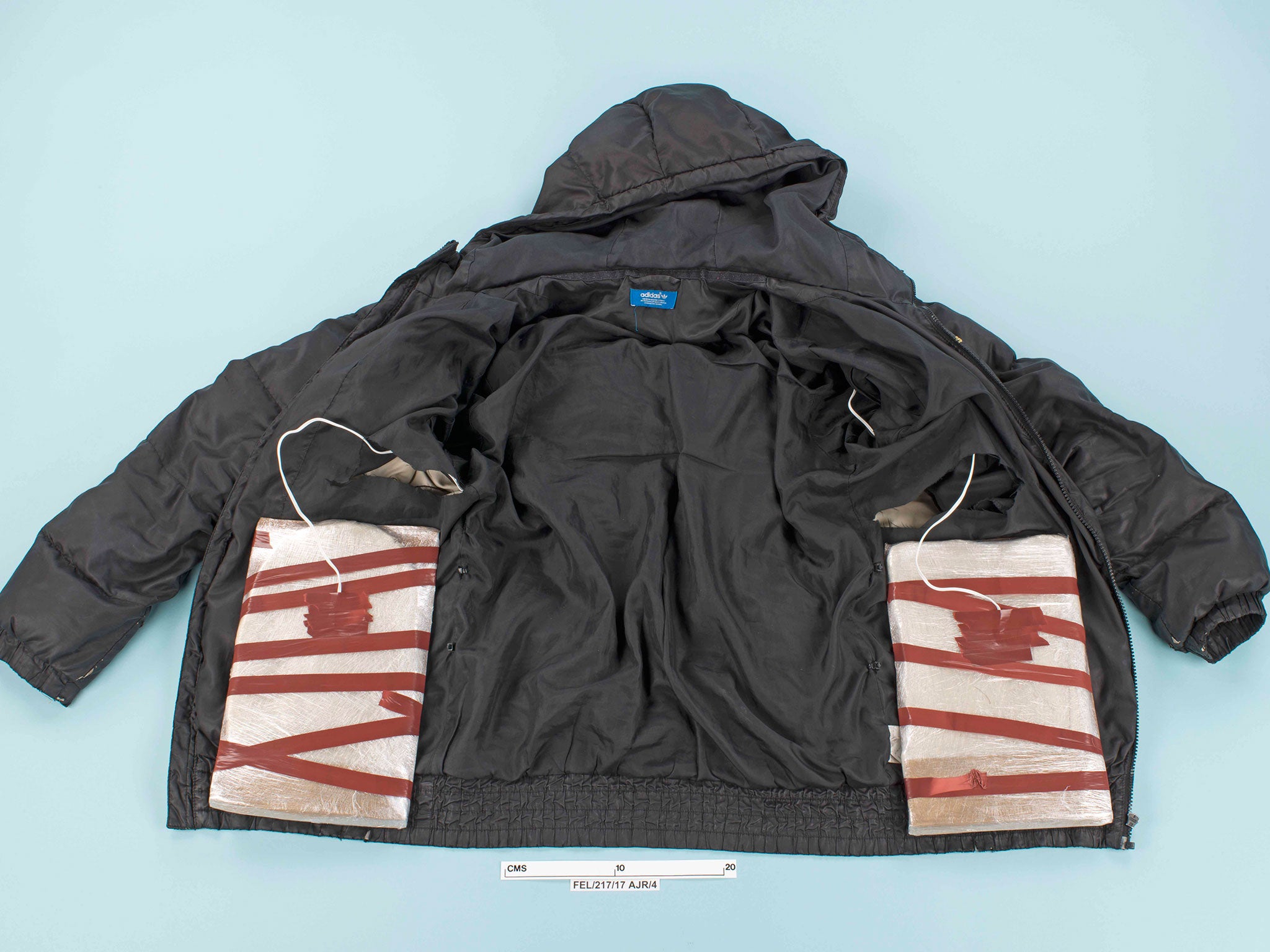Isis fanatic who planned to bomb Downing Street and behead Theresa May convicted
Plotter was caught after police seized his phone in an unrelated investigation over indecent images
An Isis fanatic who plotted to bomb Downing Street and behead Theresa May has been convicted of terror offences.
Naa’imur Zakariyah Rahman was walking down a London road with what he believed was a pressure cooker bomb and a suicide vest when he was arrested.
Spies imitating fellow terrorists had provided the 20-year-old with the fake explosives after a covert operation involving MI5, the FBI and the Metropolitan Police.
Rahman’s plan was to bomb the gates of Downing Street, kill guards, attack the prime minister with a knife or gun and then “martyr” himself with a suicide vest.
The Old Bailey heard Rahman became “determined” to attack the UK after his uncle, an Isis member, was killed by a drone strike in Syria.
Two of Rahman’s other uncles had been convicted for terrorist fundraising, and police said that as a teenager he was referred to the government’s Prevent counter-extremism scheme, but “disengaged” from the process.
Counter terror police did not start investigating Rahman until he was arrested and had his phone seized in August 2017, on suspicion of sending indecent images to underage girls.
Deputy assistant commissioner Dean Haydon, the senior national coordinator for counter terrorism policing, said: “It was apparent from the content of that phone that Rahman had received attack planning instructions from his uncle in Syria, so as a result we commenced a counter terrorism investigation.

“In the absence of his uncle, Rahman sought the assistance and advice of people online, and in doing so unwittingly made contact with an FBI roleplayer in early September 2017, who in turn introduced him to an MI5 roleplayer.”
The British agent introduced Rahman to two men, codenamed Abu Waleed and Shaq – covert officers who pretended to support Rahman’s plot while feeding intelligence on his movements and activities to police.
In one meeting with Shaq, Rahman was recorded saying he would get past Downing Street’s gates and make a “10-second sprint” for the door of Number 10, with his main objective to “take her head off”.
He later carried out reconnaissance around Whitehall, prosecutors said, walking past the entrance to Downing Street and the site of the Westminster attack, at the gate of the Houses of Parliament in March 2017.
Mr Rahman also bought a rucksack in Argos which he gave to a spy to be fitted with explosives.
On 28 November, Shaq handed the defendant back his bag and jacket claiming they were both fitted with powerful explosives, as well as a replica pepper spray device, a set of plastic gloves and a blue holdall bag.
Asked if he was ready, Rahman replied: “Yeah. Do you know? Now I’ve seen everything it feels good.”
Armed police were stationed down the same road in Kensington and swarmed Rahman minutes later, when he told an officer: “I’m glad it’s over. I’m glad I’m arrested.”

Deputy assistant commissioner Haydon said Rahman had been developing shifting terror attack plans for two years, considering using a gun before settling on a “multifaceted attack” using a bomb, suicide vest, pepper spray and knife.
“As Rahman left Shaq’s car, I have no doubt he was thinking about his very real plans to kill the prime minister in support of Daesh,” he added.
“We have successfully stopped a terrorist attack in the UK… if he’d got hold of a genuine bomb, gun and knife, we would have been talking about an attack that would have killed, injured and maimed a number of people in Whitehall, including police officers and members of the public.”
Rahman had consumed propaganda from Isis, al-Qaeda, the Muslim Brotherhood and jihadi ideologues.
He admitted helping friend and fellow extremist Mohammad Aqib Imran in his attempt to join Isis in Libya, by recording a video intended to be used after Rahman’s “martyrdom” to gain the group’s trust.
Imran, a 22-year-old from Birmingham, was found guilty of having a terrorist handbook called How to Survive in the West after the jury deliberated for 13 hours.
The jury is still deliberating on a charge against Imran of preparing terrorist acts abroad.
The pair, both British nationals, had discussed their fear of “spies” and not being able to trust anyone, the court heard.
Imran, who was arrested on the same day as Rahman, had allegedly set about gathering money and acquiring a fake passport for his trip from another MI5 role-player via encrypted instant messaging service Telegram.
Asked why police launched a covert operation rather than arresting Rahman when they found evidence of attack planning on his phone, Mr Haydon said the suspect was detained at the “appropriate time”.
“We maintained a covert operation to fully understand his aspirations, his intentions, and capability, which enabled us to control that risk,” he added.
Rahman’s defence barrister told the Old Bailey his client was vulnerable and had been “sofa surfing” after his mum kicked him out of her home.
The family had lived in the West Midlands until she moved them to London in what police said was an effort to lessen the influence of Rahman’s extremist uncles.
Rahman was said to have lived a “solitary life”, where he focused almost entirely on his plot and communicating with other extremists.
It was unclear whether he had been subjected to monitoring by another police force after he dropped out of the voluntary Channel counter-extremism process, which also attempted to deradicalise the Parsons Green bomber.
Police said Rahman “gave a story” to officials who visited his family home in late 2016.
“When Rahman was 18 years old he was referred to the voluntary Channel programme, following concerns that he was vulnerable to radicalisation by three of his uncles,” Mr Haydon said.
“Numerous attempts were made to engage Rahman through Channel but he was unwilling, and by the time he came to the attention of the counter terrorism network for his terrorist plans, he had disengaged from the process completely.”
Rahman will be sentenced at a later date.

